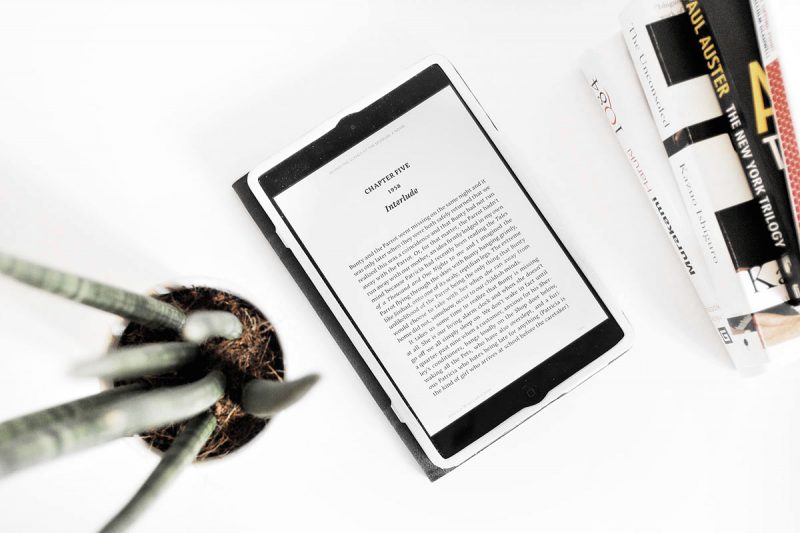
This post contains some affiliate links, which means that, at no extra cost to you, I may get paid commission if you click through those links and make a purchase. It also includes a book sent to me for review (marked by *). My reviews, opinion, and content are in no way influenced by brand or affiliate partnerships. For more information please read my Disclaimer.
I’m going to keep this short – I did.
I read 52 books this year, which means this is the second time in 8 years that I successfully finished the challenge. This number alone (I mean 2 out of 8) shows that this challenge is not a matter of life or death for me – finishing it is a nice bonus, but the yearlong motivation I get out of it to keep up my reading habit is more important.
I’m particularly happy about 2 things:
- I’ve managed to turn reading in the morning into a daily habit. I know it’s easier for me to start my day like that since I’m working from home, but that’s just a matter of timing and preferences. You can create a daily reading habit in the morning, during the commute, in your lunch break, when you get home, when you take a bath or before sleep. The only thing that’s important is to be consistent.
- I’ve read a LOT of really good books.
So, will I start the challenge next year as well?
Probably. As I’ve said previously, I’m a very competitive person, so I find these challenges both entertaining and motivating.
You can create your own challenge as well, absolutely no need to stick to a strictly numbers-based one – you can do different genres, themes, authors etc. If you aim for numbers, you can do less or more as well, whatever seems realistic and doable. It’s all about fun and finding the time in our busy lives for books and reading.
To read part I of the challenge (24 book reviews), click here.
50 books a year challenge final result: 50/52
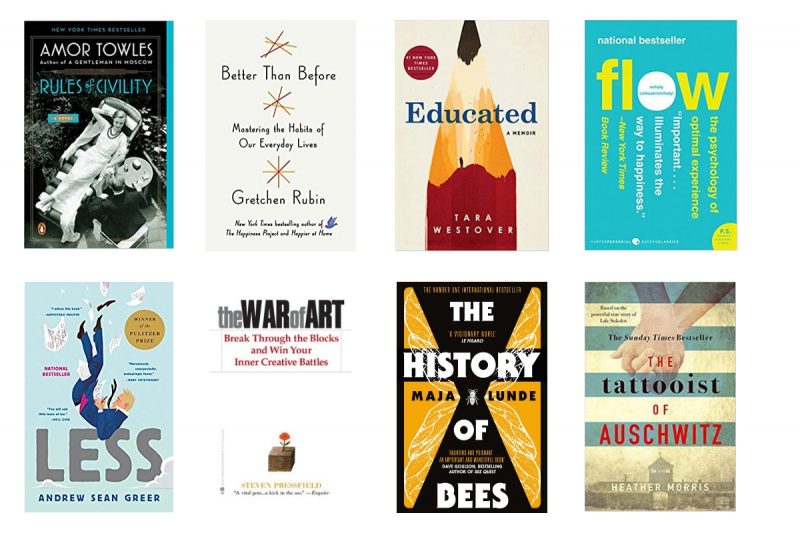
Amor Towles: Rules of Civility
Not my most memorable book this year, but I nevertheless liked this period piece, set in New York in 1938, telling the story of a country girl navigating New York high society life, relationships, and career opportunities for women at the time. Sometimes it resembled a glamorous black-and-white movie about Manhattan and this intriguing visual world is what makes this novel quite enjoyable.
Gretchen Rubin: Better than Before
Gretchen Rubin is a well-known expert on good habits and happiness. I like her writing because she successfully balances lighter, personal stories and research-based, scientific observations. I think this book can be a good starting point for anyone who’d like to learn more about the nature of habits as well as practical tips on building better habits in life.
Tara Westover: Educated
Educated is the autobiography of Tara Westover who grew up in a very secluded, religious fundamentalist family on a remote mountain in Idaho and eventually used education as a way to break out of that world. I cannot recommend this book enough. It’s often dark and violent with graphic details and brought out a series of emotions while I read it: disbelief, empathy, compassion, and often outright frustration with the author (why doesn’t she leave, how can she still love her family?), which of course stems from having absolutely no experience with such an altered state of mind and extreme socialization, and the incredibly complicated consequences of emotional and physical abuse. And this nuanced approach combined with her thoughts on the nature of memories and questions of identity is what really makes this a powerful book.
Mihály Csíkszentmihályi: Flow
This was a little meh. Flow is basically a state of mind when the enjoyment comes from being perfectly absorbed in what we’re doing, and, according to Csíkszentmihályi, this is the key to happiness in life. I find the concept intriguing, but the book doesn’t really go that deep into this whole area, it is instead a series of very general observations about different aspects of life and how we can better enjoy them. Read a couple of articles on flow, if you’re interested, that would probably be enough to cover the basics.
Andrew Sean Greer: Less
Less, the winner of the 2018 Pulitzer Prize of Fiction, is about a not very successful, middle-aged novelist trying to escape his life problems (and ease his panic about his looming 50thbirthday) by traveling around the world. It was a strange book experience for me – it definitely didn’t grab me immediately. It slowly picked up the pace and drew me into its world and I came to be invested in the protagonist’s adventures, but that full immersion just never happened. It is a charming, lighthearted, satirical novel that I enjoyed reading, but to be honest, I still don’t really see why it was awarded one of the most prestigious literary awards in the world.
Steven Pressfield: The War of Art
For some reason, a lot of entrepreneurs and freelancers are raving about this book. I say for some reason because I’m genuinely baffled as to why exactly. There’s nothing particularly unique, inspiring, and motivating about this book.
It’s full of clichés about productivity and inspiration, and, what is even more problematic, it shares a lot of quite unfounded and pretty offensive facts and assumptions about the power of productivity and creativity, like that social anxiety disorders or attention deficit disorders are just marketing ploys. Or that 70-80 % of people going to doctors aren’t sick, they are just being dramatic. Or that resistance (self-sabotage and fear to follow his goals and dreams) was the reason for Hitler’s actions and “it was easier for Hitler to start WWII than it was for him to face a blank square of canvas”. WTF? Honestly, the only reason I even finished this was that I was on a flight and didn’t have anything else to read.
If you’d like to read a much better book in this niche, go for Big Magic by Elizabeth Gilbert. That one is at least well-written and there are some interesting and inspiring ideas in it.
Maja Lunde: The History of Bees
I loved this book equally for the plots, the issue it tackles, as well as the writing. It tells the stories of three different characters and through them, 3 different eras: William in 1852 works on inventing a new type of beehive, George in 2007 is a beekeeper who struggles to keep up his family business as modern, industrial farming is taking over and the bees start to disappear mysteriously, and Tao in 2098 who has to live in a world where the bees are long gone and this has serious consequences for humanity. The topic couldn’t be more actual – we ARE currently living in George’s reality and the bees are in grave danger, most of us just don’t realize what this means. While the environmentalist lessons are strong, I’ve also loved how the book tackled questions of parent-child relationships, love, struggles, and legacy.
Heather Morris: The Tattooist of Auschwitz
The book is based on a true story, it tells the experiences of Lale Sokolov in Auschwitz as well as the love story between him and Gita, a fellow prisoner. Lale was given the job of tattooist in the camp – he was the one who had to mark the people as they arrived. The story in itself is harrowing and deserves to be told. My issue is that it wasn’t told well. The writing is often very weak, the dialogues flat, the characters remain on the surface. Unfortunately, the book also fails to explore the more complex underlying themes, like what it took to survive in the camp and how survivors can deal with survivor’s guilt.
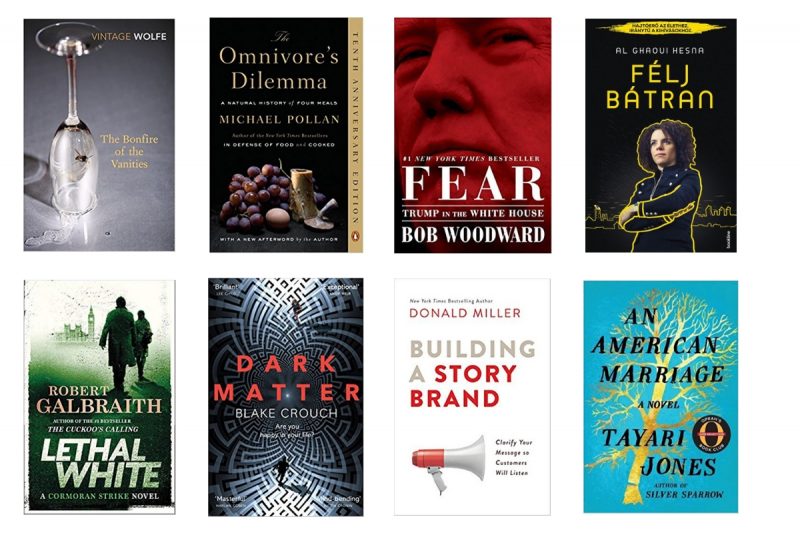
Tom Wolfe: The Bonfire of the Vanities
Really enjoyed this novel. It’s a quite long and massive work, but still very readable and a brilliant depiction of New York high society, the class, racial, and political structure and power struggles of the city in the 1980s, as well as eternal questions of injustice, hypocrisy, and morality.
Michael Pollan: The Omnivore’s Dilemma
I’ve been reading quite a lot about various food issues this year as this topic really interests me and this book covered a lot of interesting questions. How is food produced? What are the different economic, social, ethical, and environmental consequences of industrial agriculture and meat processing? Is organic food really better? Should we all adopt a vegetarian diet? It was maybe a tad too technical at times, but nevertheless incredibly eye-opening.
Bob Woodward: Fear. Trump in the White House
This book was actually a great disappointment. The writing and editing were shockingly bad, it lacked a clear narrative and storytelling, emitted a lot of crucial parts of the presidency and almost exclusively focused on military and foreign affairs aspects (probably due to the sources available). If you need further justification that the current President is totally unfit (morally, mentally, and intellectually) to lead the US, you’ll get it from this book. If you want good political journalism, choose something else.
Al Ghaoui Hesna: Félj Bátran
The writer is an award-winning Hungarian journalist of Syrian origin who’s known for her reports from war zones. Her book (roughly translated as be afraid in a brave way) is partly an autobiography sharing personal stories from her life as a reporter, partly an intellectual musing on the power of fear, how it influences our life and how we can use it to our advantage. The book had a couple of very moving stories as well as great insights and thought-provoking questions regarding fear, but sadly, sometimes it remained on the surface.
Robert Galbraith: Lethal White
I really like the Cormoran Strike series by J.K. Rowling (using the pseudonym Robert Galbraith). They continue the tradition of classic British detective novels in the best way. This fourth book was no exception – a well-written page-turner.
Blake Crouch: Dark Matter
I don’t read a lot of sci-fi novels, it’s just not a genre I particularly enjoy, but I bought this to my fiancé and read it after he finished it, just to, you know, expand my literary boundaries. This book has quite stellar reviews online, but I must confess, for me, there was nothing particularly special about it. It’s like a blockbuster action film: you know the plot is absurd, the characters flat and often annoying, but due to the pace and twists, you just wanna know what happens at the end. Fun while it lasted, but nothing more.
Donald Miller: Building a Story Brand
Storybranding is one of the latest marketing buzzwords – and in my personal opinion, with good reason. Storytelling is one of the most ancient practices of humankind and an incredibly powerful communications tool. Though I usually don’t like these fix, multistep branding systems, the fundamentals and main steps of storybranding introduced in this book are quite solid and, in my experience, also very effective. It’s an entertaining and practical read that could be quite useful for brands, marketing experts, and bloggers as well.
Tayari Jones: An American Marriage
Newlyweds, Roy and Celeste’s life turn upside down at the beginning of this novel and must deal with the consequences in the following years. I don’t want to give away the plot (though most summaries do), because even though it’s not what makes this novel outstanding (the writing and emotional depth do), that first twist can still surprise you if you don’t see it coming. So, I’ll just say, I loved this book, it’s full of thought-provoking questions about race, class, justice and injustice, betrayal and loyalty and is a wonderful depiction of how complicated and messy love can be.
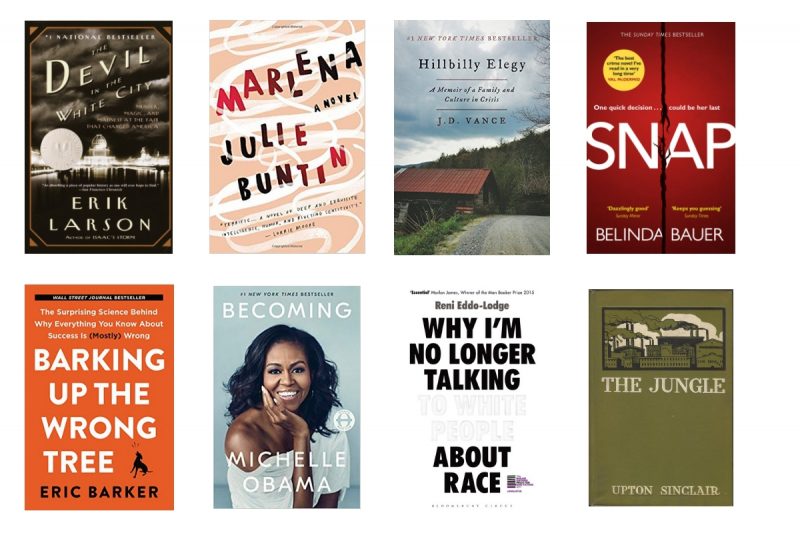
Erik Larson: The Devil in the White City
Loved this book. It’s technically non-fiction but actually reads like a novel. It tells two separate, but still connecting true stories: how Chicago built and hosted the famous 1893 World Fair and how, a couple of blocks away, a serial killer used the fair to lure his victims into death (a warning though for true crime fans, the focus is slightly more on the fair). It’s such a wonderful depiction of a very special era of transition. We learn about the enormous undertaking of building a fair in such a short time, the motivation to surpass the previous Paris fair (and the Eiffel Tower as its crown jewel), the many social and technological changes that shaped the world at the time, the many famous historical figures who helped or attended the fair, and the dark side of that glorious historical event. It was also an interesting read for me personally, as I’ve worked at a World Fair previously, and I can confirm that even though the grandeur of the 19thcentury fairs may be gone, it’s still a really interesting and special event to experience.
Julie Buntin: Marlena
Marlena is a haunting and beautifully written coming-of-age-story of two girls and the wild year that cost one her life and defined the other’s for decades. I really liked this book, even though it’s not an easy one. It’s a story of friendships, family relationships, addiction, self-destruction, drug abuse, bleakness, and hope. It’s difficult to decide whether the events are the results of decisions or predetermined sociocultural factors. What I particularly liked about this book was that it could simultaneously depict a world totally foreign to me (sadly, not foreign to a lot of people), and experiences everyone could relate to, because we all went through similar feelings of anxiety, self-doubt, a need to fit in but no directions on how as teenagers.
J. D. Vance: Hilbilly Elegy
Hilbilly Elegy tells the story of J.D. Vance and how he overcame the personal, social, economic, and cultural struggles of growing up in Appalachia and went on to become first a Marine, and then a Yale graduate. At 33 years old, it’s usually premature to write a memoir, but this book is so much more than a personal story. It’s a tale of the reality of poor white, working class America, a reality often characterized by substance abuse, hopelessness and class prejudice.
A lot of reviews and taglines capitalized on the political relevance of the book, promising a great insight into the minds of Trump voters, which holds some truth, but is a simplification and sensationalizing in my opinion. The book is not perfect and not totally without political undertones (J. D. Vance is a self-confessed conservative and he puts great emphasis on individual responsibility), but it’s definitely enlightening and hopefully can contribute a little to the social and political discussions about breaking the cycles of poverty and abuse.
Belinda Bauer: Snap
Crime novels are not my favorite genre, I picked this up as it was on the Booker Prize long list, which usually features excellent books. I’m not saying this book was bad, but I didn’t find it particularly special either. Some parts were very slow, others more engaging, overall I’d rate it 3 stars.
Eric Barker: Barking up the Wrong Tree
Barking up the wrong tree promises life-altering revelations about what it really takes to succeed in life – which is a bit of an overstatement. It does have good and interesting real-life stories about (often eccentric) successful people and a fair amount of practical, good life advice – the part about the importance of networking was especially inspiring. If you like the Malcolm Gladwell type of storytelling of connecting seemingly random stories through one big conclusion, you’ll probably find this book interesting, even if the style is a bit more sensationalist than Gladwell’s.
Michelle Obama: Becoming
After my two bad experiences with political books this year, it was high time for a good one. And this is a good one for sure. It’s engaging, well written, and entertaining, but thought-provoking at the same time. It’s a nice mix of behind-the-scenes lighter stories from the Obama campaign and presidency, raw and honest personal memories and feelings, and deeper analyses of identity, equality, and contemporary social issues.
Reni Eddo-Lodge: Why I’m no longer talking to white people about race
I’ve read a couple of books this year that had a profound impact on my political thinking, especially with regards to class and race relations – and this one is definitely among them. The book takes a long, hard look at what it takes to be a person of color in Britain today. In a way, it’s really similar to Ta-Nehisi Coates’ Between the World and Me – daring, illuminating, and important to read.
Upton Sinclair: The Jungle
I’ve always thought The Jungle was a classic piece of investigative journalism about the horrors of the meatpacking industry in the early 20th century. And it is, to some extent. It vividly describes the horrific conditions of slaughterhouses and stockyards and played a critical role in instigating some institutional changes and founding the FDA. However, this is not what the book is mostly about, even if this is the reason it became world famous (Sinclair once said he aimed at his public’s heart, but by accident, he hit it in the stomach). The book depicts the dark American Dream and how immigrants who came here searching for a better life are exploited and destroyed by the system. Apart from the end, which is a long, idealistic rant about Socialism (that Sinclair himself later wished he didn’t write), this book is extraordinary. And while it may seem a period pace and about a certain time in history, what makes it even more harrowing is that a lot of the issues depicted are still present today.
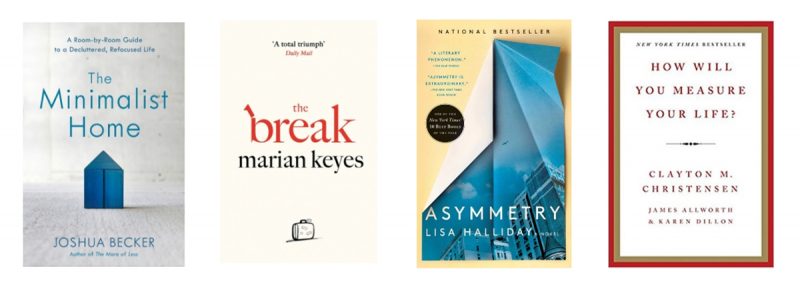
Joshua Becker: The Minimalist Home
(* I received this book for review consideration). Joshua Becker has been writing about minimalism in his blog Becoming Minimalist for years and he’s one of the most well-known minimalist influencers out there. In The Minimalist Home, he shares all his decluttering tips, systematically going through various rooms and offering a system on how to transform your home into a minimalist space. The book does fall into the classic minimalist trap of glorying the potential effects minimalism can have on one’s life (yes, it has great benefits, but do not expect your life to change in an instant) and I’d have liked to read a bit more about how and why we can change our shopping habits (because decluttering in itself does not ensure a sustainably minimal lifestyle), but one thing is sure. This book WILL inspire you to get organized and start decluttering immediately. I consider myself quite organized and I don’t really have a lot of unnecessary stuff, but I still became really enthusiastic about doing another decluttering round in my life.
Marian Keyes: The Break
This was the first book I’ve read from Marian Keyes, but probably not the last. It was witty, easy to read with interesting, colorful characters, but also a lot of thoughtful contemporary issues underneath the lighter surface – like life choices, family relationships, what it takes to fall in love and, more importantly, what it takes to stay in love. A very enjoyable book.
Lisa Halliday: Asymmetry
This book made most of the Best Books of 2018 lists and deservedly. It reads like 2 different, seemingly unrelated short stories, but the epilogue at the end connects them in a very subtle, but interesting way. I find it a remarkable debut novel, easy and enjoyable to read, but full of complex issues and questions. I love when a book makes me think long after I’ve finished it and this was definitely the case with this one.
Clayton M. Christensen: How Will You Measure Your Life?
Despite the title, this is not your typical self-help book. The author (famous for his book, The Innovator’s Dilemma) is one of the most influential writers on innovation in the world and in this book, he makes a case for applying various business ideas and theories to our career and personal life in order to achieve a genuinely fulfilling life. How he defines a fulfilling life and the overall conclusions may not be very groundbreaking (integrity, relationships etc), but I found this business type approach, as well as the stories and real-life business cases really interesting and there are some good strategies and tips in there.
What were your favorite books in 2018?

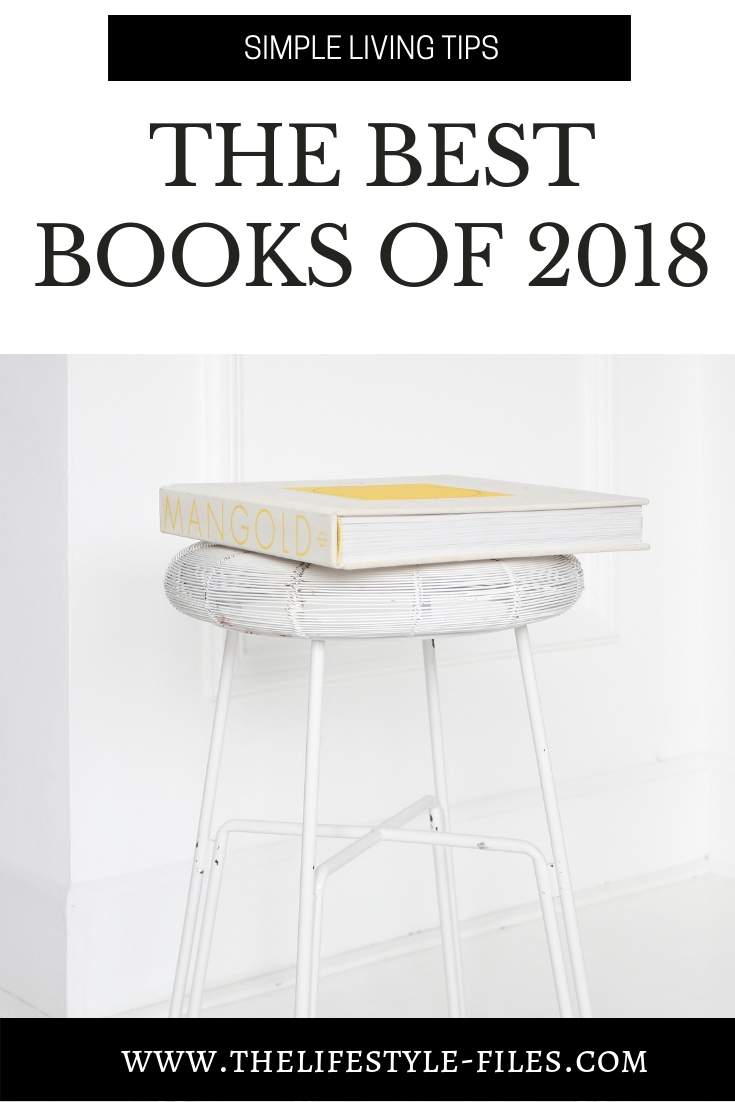
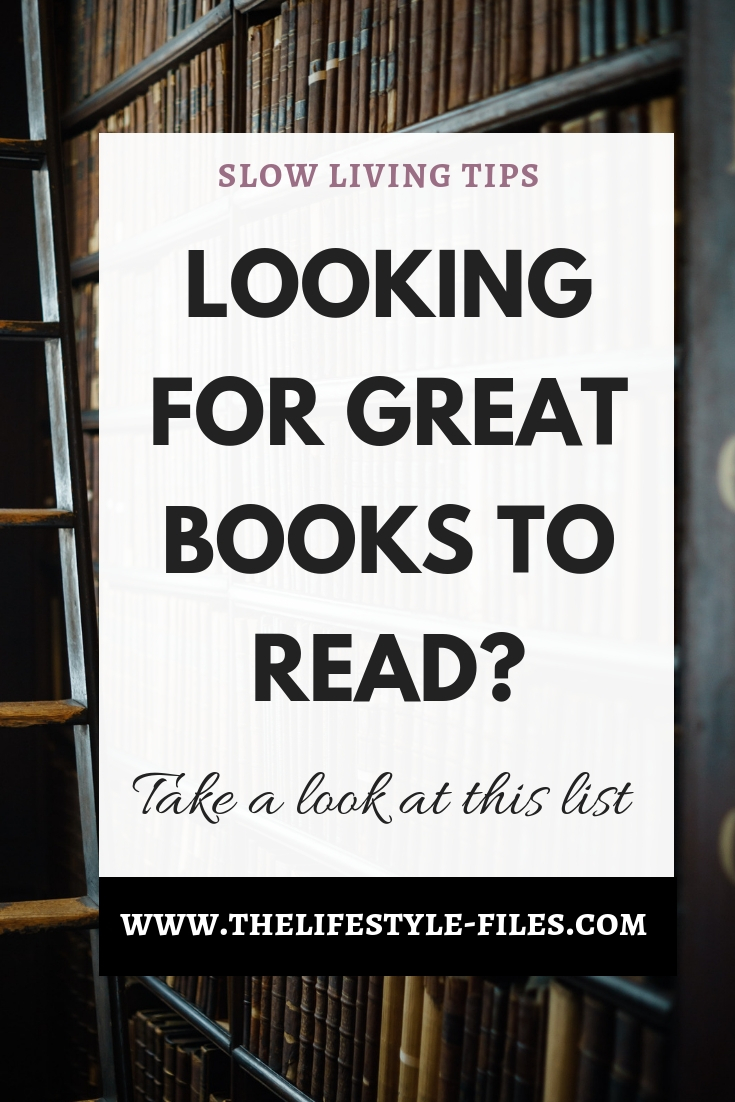
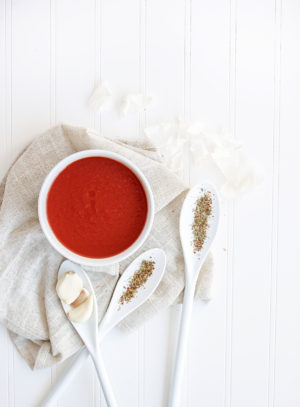
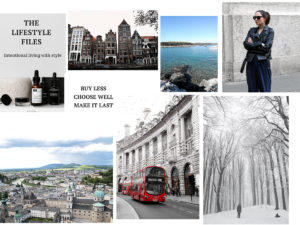
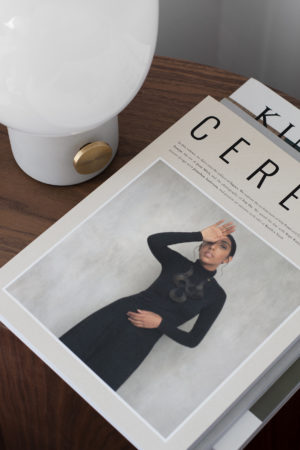
[…] is not bad, I’d think! Of course, it’s nothing like Grace’s 81 books in a year or Viktoria’s 52 books, but it’s probably the most number of books that I’ve read in a single year in recent […]